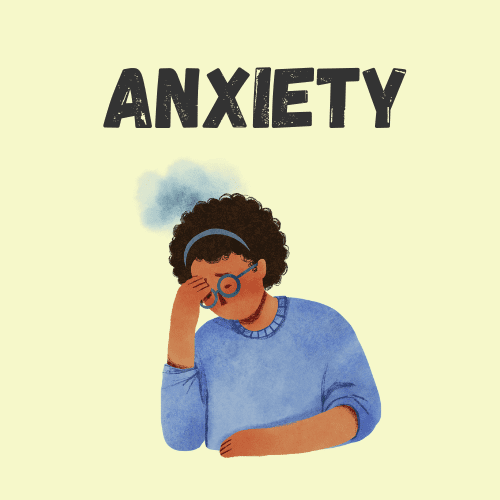Anxiety
Friday October 6, 2023

Anxiety is a common issue for those with dementia. For those whose brain doesn’t function correctly, it’s hard to make sense of what is going on around you. This can easily lead to frustration and anxiety.
What does anxiety look like?
- Repeated questions: When is my husband coming home? Where is my daughter? Who are you? What did I do with my purse?
- Pacing
- Obsessive behaviors, like checking the doors or looking out the window repeatedly
- Repetitive movements, like wringing their hands
- Irritability
What causes anxiety in someone with dementia?
For those with dementia, the world they are living in simply does not make sense.
Imagine that you know you are supposed to do something important, but you cannot remember what it is, so you spend time worrying about it and looking for clues. Did you write it down somewhere? Maybe there is someone else here who knows what is going on. You find someone who knows who you are, but you don’t know who that person is. This makes you even more anxious.
Changes in routine and environment can increase anxiety. Change is scary, especially when your brain isn’t processing correctly.
How do you help your loved one manage anxiety?
- Approach with patience and understanding. Your loved one is not trying to be difficult or cause stress. Dementia has changed them. They do not have control over how they are behaving. Navigating the world is very hard for them now.
- Put yourself in your loved one’s shoes. See if you can figure out what is causing them to be anxious. Could they be worried about an upcoming appointment? Has there been a schedule change?
- Provide reassurance and then distract. Don’t argue or try to explain. It will only cause more confusion. Instead, validate their feelings and change the subject. For example, you are at home, and your mom is asking repeatedly, “When am I going home?” You can say, “I know you are upset because you want to go home right now, but it is too late to make the trip. Why don’t we get a snack? I have some of those chips you like.” Or if your spouse is upset because he can’t find what he is looking for, you can say, “I get so frustrated, too, when I can’t find what I am looking for. I can help you look in a little bit. Right now, can you help me with the laundry?”
- Check that their needs are met. Are they pacing because they need to go to the bathroom? Are they hungry and need a snack? Sometimes, basic needs of food, personal care, and comfort can be the keys to addressing anxious behaviors.
- Talk with the doctor. This is so important! You need to be honest with your loved one’s physician about what is going on. While there is no cure for many of the causes of dementia, there are ways to treat symptoms if the interventions we have listed above are not working. Don’t just say, “Mom is anxious.” Give details and examples of what it looks like. Instead say, “Every afternoon Mom paces the house and asks to go home. I cannot redirect her. She gets more and more upset and yells at me when I try to help.” Being descriptive will give the physician a clear picture of what the anxiety looks like. And to avoid tattling on your loved one in front of them, you can communicate through the Patient Portal ahead of time or write out what the doctor needs to know (Put your note in an envelope that says, “The doctor needs to read this prior to coming into the exam room.”) and give it to the staff when you check-in.
What if the doctor prescribes medication for anxiety?
We think it’s helpful to describe anxiety as emotional pain.
Think about a moment in your life when you experienced extreme physical pain – like breaking a bone or major surgery. Your doctors may have told you to take medication to “stay ahead of the pain.” They wanted you to take the medication before you started hurting, so you could avoid the pain. The same can be true for anxiety medication. Sometimes, if you wait until your loved one is anxious, it will be harder for your loved one to deescalate – even with the help of medication. It can be more effective to give the medication before you know they might be anxious to help avoid anxiety.
For example, if your mom is anxious every day at 3 p.m., try giving the medication around 2 p.m. If she is already anxious, it will be harder to administer the medication AND her body will have to calm all the way down from a heightened state.
Communicate with the physician if you notice the medication doesn’t seem to help after some time. Ask them how long it usually takes to take effect. Some medications will take 1 – 4 weeks to be fully effective. Or if you notice your loved one has a negative reaction to the medication, it is important to communicate that as well. It may take time, trial and error, and trying a few different medications to find the right one and the best dosage. Your doctor is an important partner in this, and communication is key!
The goal of anxiety medication is not to make your loved one seem “out of it” or “zombie-like” but to help them function in the best way they can.




